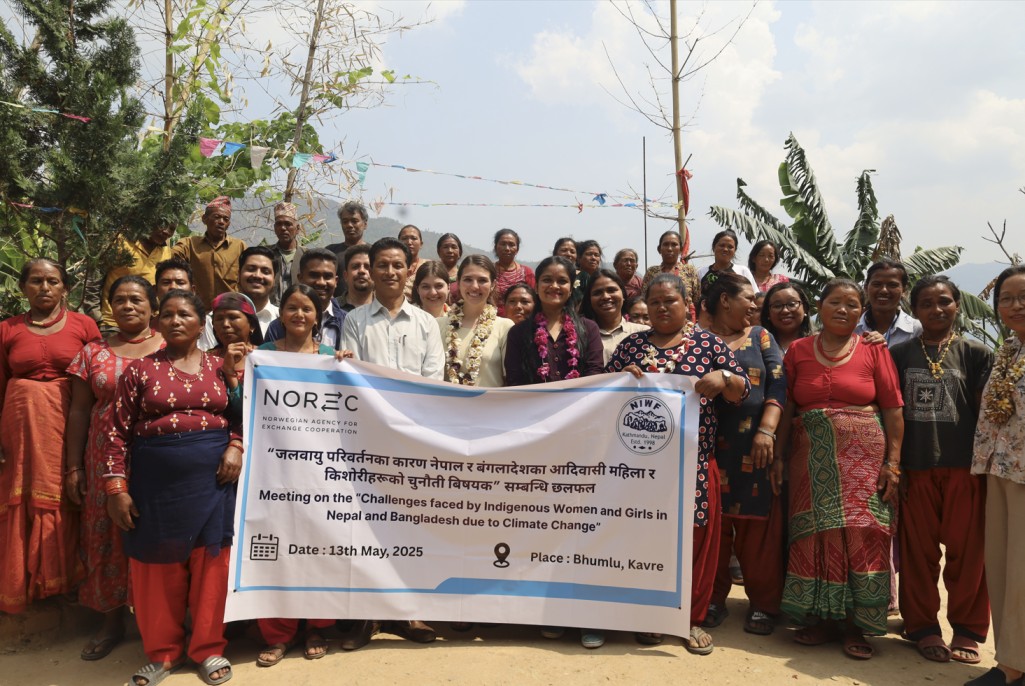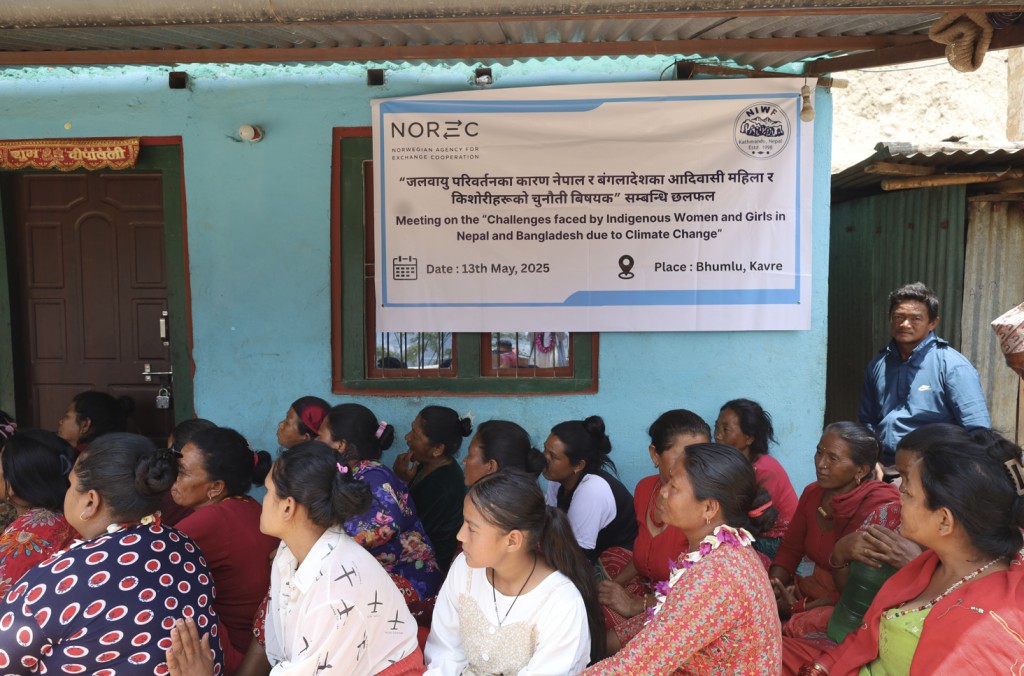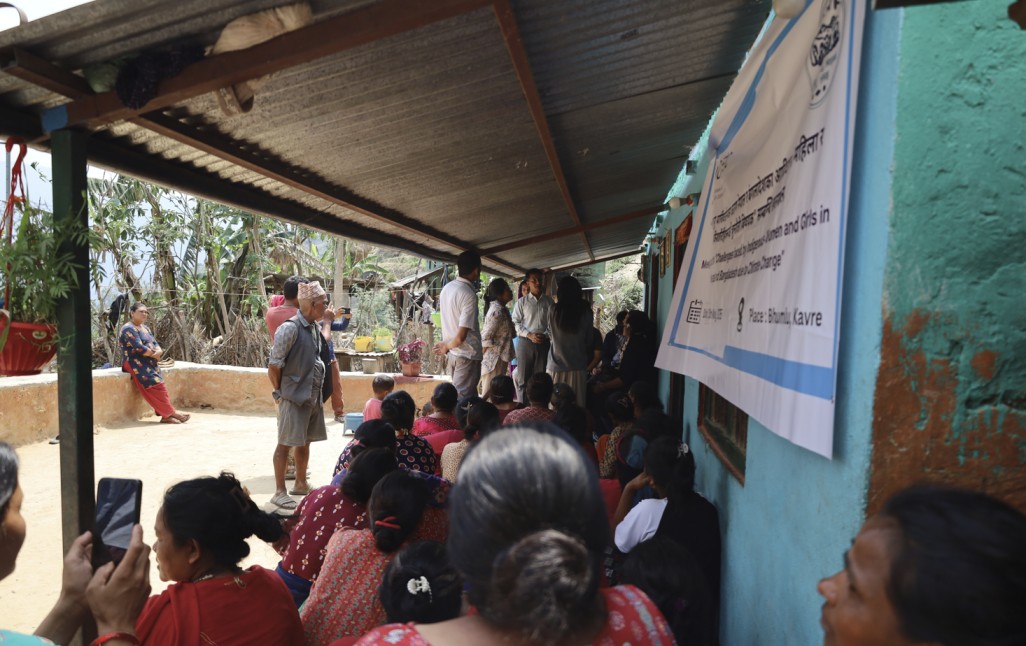
On 13th May 2025, the National Indigenous Women Forum (NIWF) organized a meeting titled “Challenges Faced by Indigenous Women and Girls in Nepal and Bangladesh Due to Climate Change” in Ward No. 6 of Bhumlu Rural Municipality, Kavrepalanchowk. This meeting served as a cross-border exchange of experiences, perspectives, and strategies between Indigenous women leaders from Nepal and Bangladesh, with a focus on how climate change disproportionately affects Indigenous communities especially women and girls. The program brought together the Indigenous women’s group from NIWF’s Climate Leadership and Action for Indigenous Women in Nepal (CLAN) project, two youth volunteers from Bangladesh, the team from the Norwegian Agency for Exchange Cooperation (NOREC), and NIWF staff. The diverse representation at the meeting allowed for an engaging and reflective dialogue on shared challenges, grassroots resilience, and the urgency of strengthening climate leadership among Indigenous women and girls.

The Chairperson of Bhumlu Rural Municipality also joined the session and delivered remarks underlining the vital role of Indigenous communities in climate action. He emphasized the importance of supporting community-led initiatives and empowering Indigenous women to take leadership roles in climate adaptation and decision-making. He also acknowledged NIWF’s efforts in strengthening local capacities and expressed the municipality’s willingness to collaborate more closely on such inclusive and transformative projects. The meeting fostered mutual learning and solidarity between the participants, affirming that although the specific geographic and cultural contexts may differ, the systemic challenges faced by Indigenous women due to climate change are strikingly similar. Participants agreed on the need for continued cross-border dialogue, greater investment in Indigenous-led solutions, and stronger advocacy to ensure Indigenous voices are heard in national and international climate policymaking spaces.


